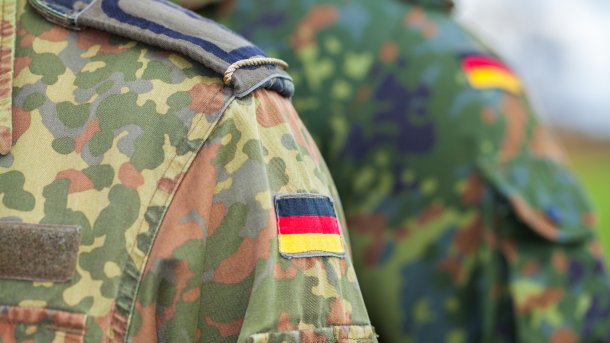Government: Bundeswehr does not need IRIS2 and Starlink satellite networks
The CDU and CSU are concerned that the German armed forces would be completely dependent on foreign providers, even with the new EU satellite network IRIS2.

(Image: Filmbildfabrik/Shutterstock.com)
The German government is attempting to allay the fears of conservatives surrounding the EU's planned satellite constellation for high-availability broadband internet. In a question to the executive, the CDU/CSU parliamentary group expressed concern that local companies are apparently playing no or only a very marginal role in the development of the "Infrastructure for Resilience, Interconnectivity and Security through Satellites" (IRIS2). This would make the Bundeswehr in particular "completely dependent on non-German providers" for an important communication resource. The government counters this: The Bundeswehr's needs for long-range connectivity are already covered elsewhere.
In the answer now published, the Federal Ministry of Economics refers to the armed forces' Level 2 satellite communications (SATCOMBw), for which the Bundestag released around 62 million euros in May 2022. Airbus Defense and Space operates a large ground station in Weilheim for the German Armed Forces. Like the two military-operated counterparts at the Gerolstein and Kastellaun sites, it serves as an anchor station for data transmission to and from the satellites and as an interface to the terrestrial communication networks. The Ministry of Defense sees the "availability of its own transmission capacity" on earth satellites as a "basic requirement for national and alliance defence". The current contract with Airbus runs until the end of 2028, but the government is already considering a further extension with stage 3.
Videos by heise
"An additional requirement coverage and resilience increase to connect the armed forces via IRIS2 is being examined," adds the economic department. In principle, "the establishment, further development or maintenance of Bundeswehr capabilities does not depend solely on the participation of German industry in multinational or European projects such as IRIS2". With SATCOMBw, the armed forces had "the capabilities to establish stable data connections". In principle, the Bundeswehr is also not dependent on the availability of the commercial satellite network Starlink from Elon Musk's SpaceX company "to cover requirements for satellite-based communication". This form of internet supply is used by the Ukrainian military on all fronts in the war against Russian troops. It is used, for example, for drone control and for contacts with hard-to-reach units.
Preliminary estimate: German financial share of 580 million euros
The authorities and organizations with security tasks reserve the right to use IRIS2 "within the scope of their tasks", reports the government. As the conditions and requirements for access are still open, a further assessment of this aspect cannot yet be made. Federal Economics Minister Robert Habeck (Greens) recently surprised everyone with his proposal to postpone the launch of the EU satellite constellation and go back to the drawing board. A consortium of European space and telecommunications companies under the leadership of Airbus, which also includes Eutelsat, Hispasat, SES, Thales, Deutsche Telekom, Orange and OHB from Bremen, wants to launch IRIS2. Instead of over 6 billion euros, this SpaceRise alliance has now estimated a price of almost 12 billion euros to get the network up and running. Habeck criticized this "exorbitant" price.
No such criticism can be found in the response from the Ministry of Economic Affairs. IRIS2 serves to establish a secure space-based global communication system for the EU and thus makes "an important contribution to strengthening European sovereignty in space", it says. "It will ensure highly secure connectivity and communications for government, civil and security-critical services and also enable broadband access in the EU through commercial satellite services." In a rough estimate, Germany's share of funding in the current budget period amounts to around 580 million euros, with the total cost of the program estimated at 2.4 billion euros. France would have to contribute around 400 million euros. The government has not yet taken into account the potential cost increase. Germany and France also want to co-finance the IRIS2 support program of the European Space Agency (ESA) with several hundred million euros each.
(vbr)